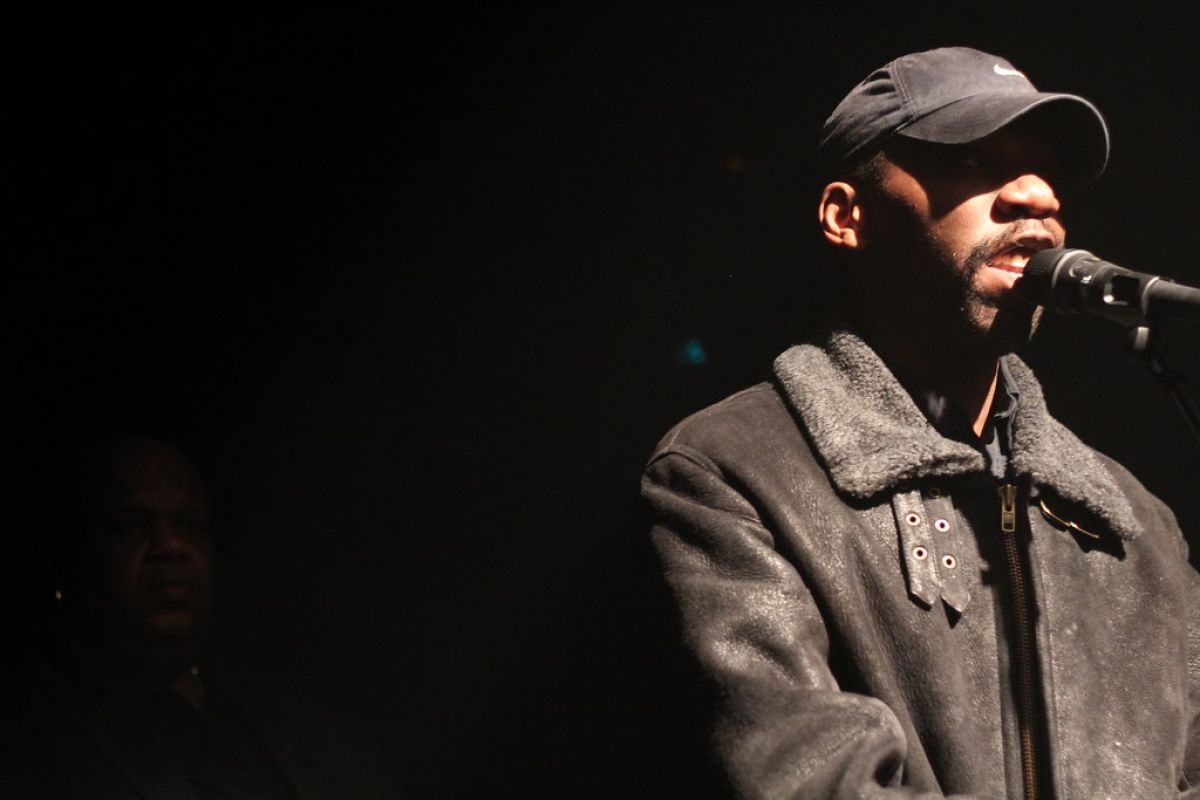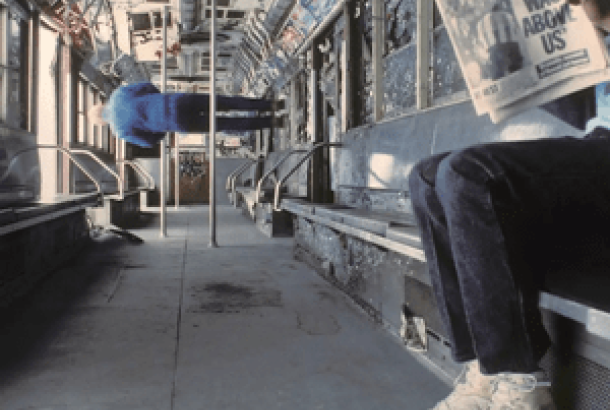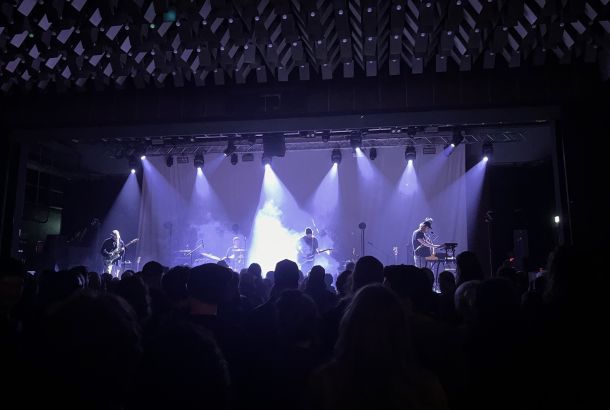
In a field perhaps overstuffed with white middle-class university graduates paying homage to their favourite 80s bands, Dean Blunt stands practically alone amongst contemporary Britain’s alternative music canon.
Initially cutting his teeth as a bassist for Graffiti Island, Blunt quickly moved on to start the experimental duo Hype Williams alongside Inga Copeland. Outside of the group’s boundary-pushing music, they were perhaps best known, and in some cases loathed, for not taking themselves too seriously. The pair were consistently changing their backstories in the few interviews they took part in. The final album the duo worked on together – Black is Beautiful – was supposedly recorded after Copeland had attended try-outs for Arsenal W.F.C. and Blunt had been on trial for a taxidermist robbing spree.
However, all of this was merely a starting point for the career of one of the most eclectic solo artists Britain has ever been witness to.
Dean Blunt stands out from his contemporaries who refer back to, and derive their sound from 80s new-wave and post-punk. Instead, his sample-heavy music draws from a myriad of influences. These include 90s jangle-pop, progressive rock, reggae, dancehall and dub. Meanwhile, his other project, Babyfather, plays with more modern sounds of British and American hip-hop and club music. But it also integrates the stylings of the work put out under his original pseudonym.
The endlessly fascinating musician routinely plays with genres that are hallmarks of Black British culture. His most popular album, Black Metal, could be vaguely summarised as ‘alternative’ or ‘art pop’. But there are moments of ‘blackness’ which at first sight appear largely at odds with the rest of the album. After a barrage of guitar-laden ballads, the tracks ‘PUNK’ and ‘HUSH’ greet the listener with the sounds of dub and hip-hop. Dean Blunt’s sung-spoken delivery even echoes that of iconic dub poet Linton Kwesi Johnson.
At this point, the record’s title begins to make sense. The name Black Metal may be born out of a smirking ironic misnomer. But the album itself is very much a product of Dean’s life as a black man in Britain. The lyrical subject matter is also more akin to hip-hop than it is to dreamy alt-pop. Narrated with frequent use of patwa, Blunt speaks plainly of conflict with the police, clubbing, and drug use across the album’s 13 tracks. Even the song titles subvert the typical titling conventions of a by-the-numbers alternative album.
Dean Blunt more overtly refers to blackness in Britain in his previously mentioned Babyfather side project. Eschewing the rock stylings of his solo work, with Babyfather, Blunt creates his own lane of experimental hip-hop. Alongside the narration of DJ Escrow (a pitched-up James Massiah), Babyfather creates a musical collage. This consists of hip-hop, grime, dub, and club music, interpolated with the sounds of a past inner city London. Think sirens, old Nokia ringtones, and ambient noise. The group’s album, “BBF” Hosted By DJ Escrow, starts with a mellow guitar instrumental accompanied by a sample of Craig David saying “This makes me proud to be British” at the MOBO Awards. It is repeated to the point that this expression of patriotism becomes ironic.
Over the course of 23 tracks, Babyfather merge multiple genres, both new and old. Spinning similar narratives of clubbing, nightlife and confrontations with the police, the record becomes essentially a time capsule of life as a black man living in inner-city London. The radio dialogue interludes from DJ Escrow talk of peace and unity for his community in the face of outside oppression. This is done in a way that echoes the messages of reggae artists of the past.
It makes sense then why this experimental artist has achieved cult status in the music industry. His approach to black musical nostalgia is one that comes across as largely unique. Blunt’s production work for popular artists also shows similar artistic patterns of drawing from past black music. In his collaborations with A$AP Rocky, there are clear homages to Memphis rap (‘Gunz n Butter’) and Timbaland-era R&B (‘Benzo Amore’). His consistently referential and reminiscent style is almost like that of an archivist, digging out musical genres that are largely confined to history. By reworking them into modern collages, he is able to shed light on the modern Black experience – whether intentional or not.







